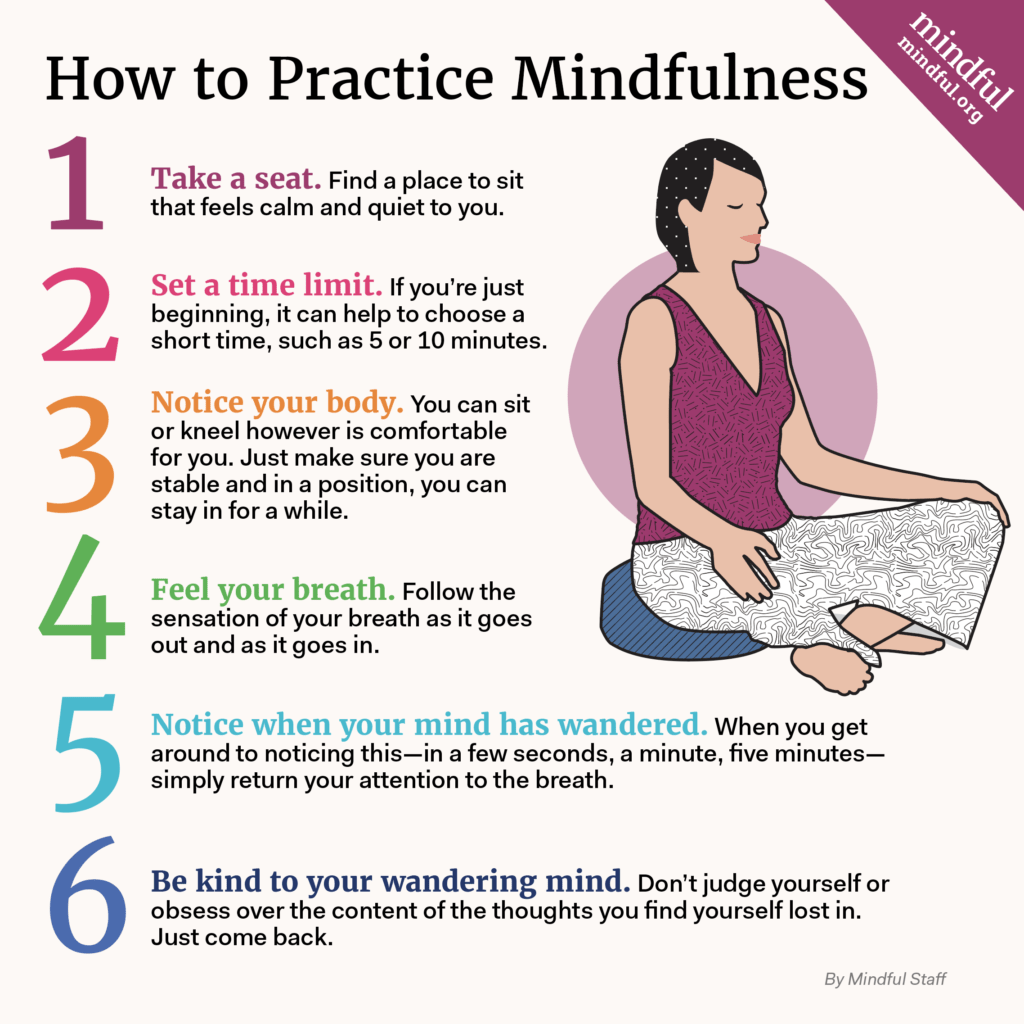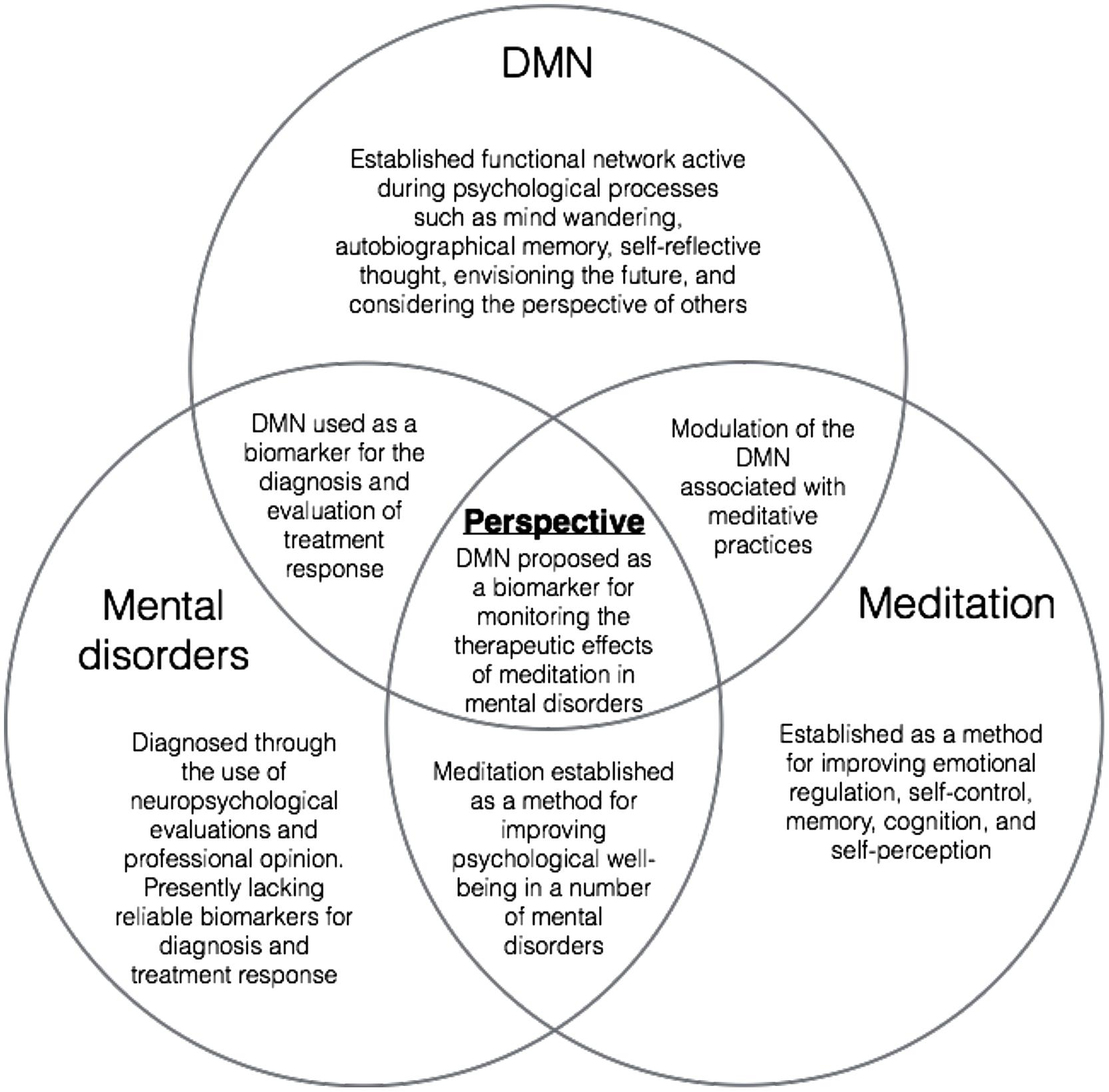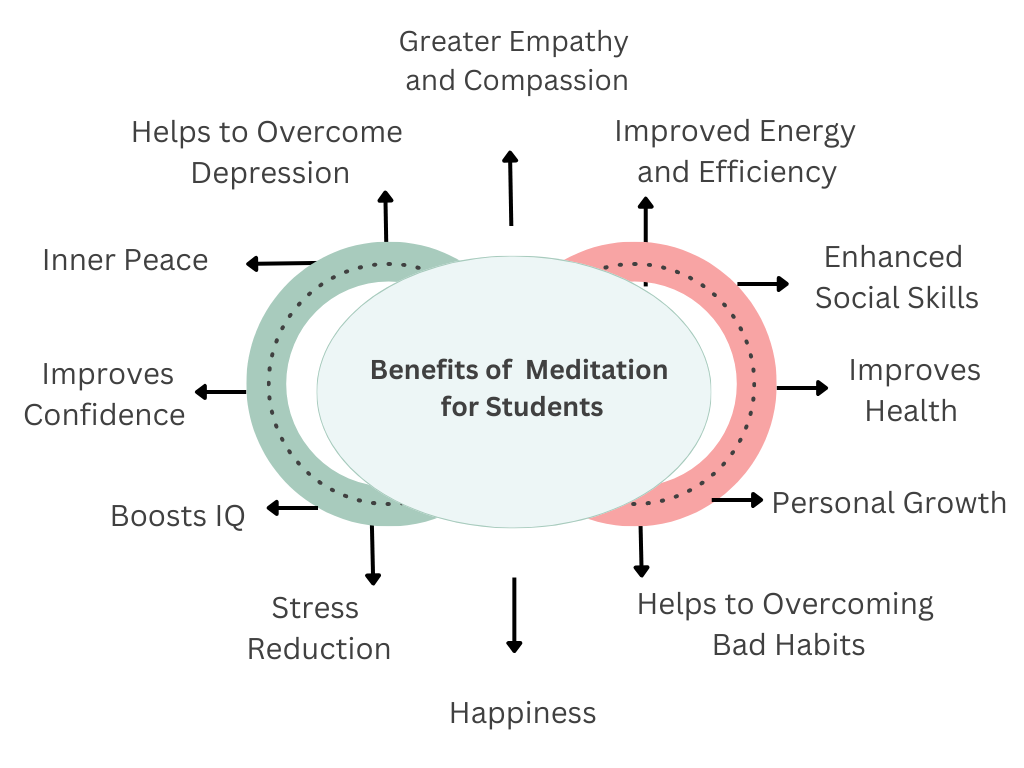In today’s fast-paced world, stress and anxiety have become an unavoidable part of life. But what if there was a simple, scientifically-backed practice that could help you stay calm, improve focus, and regulate emotions? Meditation and mindfulness offer just that.
The thing about meditation is: You become more and more you.
David Lynch
Meditation is often thought of as a spiritual or religious practice, but modern neuroscience has revealed its profound effects on the brain. Research shows that meditation reduces stress, enhances concentration, and improves emotional regulation by altering neural pathways, particularly those associated with the brain’s default mode network (DMN).
Let’s dive into the science behind meditation and mindfulness, explore the insights shared by Andy Puddicombe in his TED Talk (“All It Takes Is 10 Mindful Minutes”), and analyze findings from neuroscientific research published in Nature Reviews Neuroscience (Fox et al., 2016).
What Is Meditation and Mindfulness?
Meditation is a practice where individuals focus their mind on a particular object, thought, or activity—such as breathing—to train attention and awareness. Mindfulness, a form of meditation, involves being fully present in the moment without judgment.

Mindfulness meditation encourages:
✅ Observing thoughts without attachment
✅ Focusing on the present rather than dwelling on the past or future
✅ Cultivating a sense of inner calm and clarity
Types of Meditation
- Mindfulness Meditation – Observing thoughts, emotions, and sensations without judgment.
- Focused Attention Meditation – Concentrating on a single object, like the breath.
- Loving-Kindness Meditation (Metta) – Cultivating compassion towards oneself and others.
- Transcendental Meditation – Repeating a mantra to achieve deep relaxation.
- Body Scan Meditation – Bringing awareness to different parts of the body to relieve tension.
Each of these practices strengthens different brain networks, leading to various cognitive and emotional benefits.
How Meditation Modifies the Brain: The Role of the Default Mode Network (DMN)
The default mode network (DMN) is a group of interconnected brain regions active when we are not engaged in focused tasks—such as when we are daydreaming, ruminating about the past, or worrying about the future. This network is associated with self-referential thoughts, which can lead to stress and anxiety.

According to the Nature Reviews Neuroscience study, meditation affects the DMN by:
✅ Reducing activity in the DMN, decreasing mind-wandering and overthinking
✅ Strengthening connections between the prefrontal cortex and limbic system, enhancing emotional regulation
✅ Increasing gray matter density in brain areas linked to self-awareness, empathy, and memory
Key Brain Regions Affected by Meditation
🧠 Prefrontal Cortex – Enhances focus, decision-making, and self-control
🧠 Amygdala – Reduces reactivity to stress and emotional triggers
🧠 Hippocampus – Strengthens memory and learning capabilities
🧠 Anterior Cingulate Cortex – Improves attention and cognitive flexibility
By reshaping these neural pathways, meditation helps us respond rather than react to stressful situations, leading to greater emotional stability.
Stress Reduction: Meditation as a Natural Antidote to Anxiety
One of the most well-documented benefits of meditation is its ability to reduce stress and anxiety.
🔬 Scientific Evidence:
- Studies show that as little as 8 weeks of mindfulness practice can significantly lower cortisol levels, the hormone responsible for stress.
- Meditation helps activate the parasympathetic nervous system, which counteracts the body’s “fight-or-flight” response and induces a state of relaxation.
You should sit in meditation for 20 minutes a day, unless you’re too busy. Then you should sit for an hour.
Zen Proverb
Andy Puddicombe’s TED Talk emphasizes this simple truth:
“You don’t have to be a monk or spend hours meditating—just 10 mindful minutes a day can create a profound shift in how you experience life.”
By taking a few moments daily to pause and observe our thoughts, we retrain the brain to be less reactive to stressors.
Meditation for Focus and Productivity
In today’s digital age, distractions are everywhere. Meditation has been proven to enhance attention and cognitive performance.

🔍 Key Findings from Neuroscience Research:
- Meditation increases activity in the dorsolateral prefrontal cortex, the brain region responsible for executive function and concentration.
- Regular meditators show improved sustained attention and faster reaction times on cognitive tasks.
- Mindfulness training has been linked to enhanced working memory and decision-making skills.
Practical Application: Mindful Work Habits
✅ Start your day with 5 minutes of deep breathing
✅ Take mindful breaks between tasks to refocus attention
✅ Use the “STOP” technique – Stop, Take a breath, Observe, Proceed
By training the mind to stay present, meditation helps eliminate distractions and boost productivity.
Emotional Regulation: Becoming Less Reactive, More Resilient
Ever felt overwhelmed by emotions? Meditation helps regulate emotional responses by rewiring the brain’s reaction to stimuli.
🌊 How It Works:
- Meditation decreases amygdala activity, making us less reactive to negative emotions.
- Loving-kindness meditation (Metta) has been shown to increase compassion and empathy, strengthening social connections.
- Mindfulness-based cognitive therapy (MBCT) is now widely used to prevent relapse in depression and anxiety disorders.
✅ Real-Life Benefits:
- You become less triggered by stressful situations.
- You develop greater emotional resilience.
- You learn to respond with awareness rather than impulsivity.
How to Get Started: A Simple 10-Minute Meditation Routine
Ready to start meditating but don’t know where to begin? Follow this simple 10-minute mindfulness exercise inspired by Andy Puddicombe’s TED Talk:
1️⃣ Find a quiet place – Sit comfortably with your back straight.
2️⃣ Close your eyes and take a few deep breaths.
3️⃣ Focus on your breath – Observe the sensation of air entering and leaving your nose.
4️⃣ When your mind wanders, gently bring it back to the breath.
5️⃣ Notice thoughts without judgment – Let them pass like clouds in the sky.
6️⃣ Continue for 10 minutes, staying present in the moment.
🎯 Pro Tip: Start small and gradually extend your meditation sessions as you become more comfortable.
Final Thoughts: The Transformative Power of Meditation
Meditation and mindfulness are not just spiritual practices—they are scientifically proven methods to enhance mental clarity, reduce stress, and improve emotional well-being.
🔬 Key Takeaways:
✅ Meditation rewires the brain by modulating the default mode network 🧠
✅ Regular practice reduces stress, anxiety, and emotional reactivity 🌿
✅ Meditation enhances focus, productivity, and cognitive performance 🎯
✅ Just 10 minutes a day can bring lasting mental and emotional benefits
As Andy Puddicombe beautifully puts it:
“We can’t change every little thing that happens to us in life, but we can change the way we experience it.”
So why not take a few mindful minutes today? Your brain (and your future self) will thank you! 🙏✨
⏳ Recent Insights into Meditation and Mindfulness: The Science Behind a Calmer, More Focused Mind 🧘♂️✨
Meditation and mindfulness have gained widespread recognition for their ability to reduce stress, enhance focus, and regulate emotions. By training the mind to stay present, these practices rewire the brain, improve mental resilience, and support overall well-being. Recent scientific studies have uncovered new insights into how meditation influences brain function and emotional health.
Here’s what the latest research reveals:
🧠 “Meditation Enhances Brain Structure and Cognitive Function”
A study published in Nature Reviews Neuroscience found that meditation strengthens key brain areas, leading to:
✅ Increased gray matter density in regions responsible for self-awareness, learning, and memory
✅ Enhanced connectivity in the prefrontal cortex, improving focus and decision-making
✅ Reduced activity in the Default Mode Network (DMN), decreasing mind-wandering and overthinking
These findings suggest that meditation reshapes the brain for better cognitive control and emotional stability.
📖 Read more: Meditation and Brain Health
🧘♂️ “Mindfulness Reduces Stress and Anxiety by Regulating Cortisol Levels”
Chronic stress can lead to increased levels of cortisol, the body’s primary stress hormone. Research in Psychosomatic Medicine found that:
✅ Regular meditation lowers cortisol production, reducing feelings of anxiety and overwhelm
✅ Mindfulness activates the parasympathetic nervous system, promoting relaxation and emotional balance
✅ Short daily sessions (as little as 10 minutes) can significantly decrease stress-related symptoms
📖 Explore the findings: Meditation and Stress Reduction
💖 “Meditation Improves Emotional Regulation and Mental Resilience”
Studies in Frontiers in Psychology show that meditation strengthens emotional control by:
✅ Decreasing activity in the amygdala, the brain’s fear and stress center
✅ Enhancing emotional resilience, helping individuals respond rather than react to challenges
✅ Boosting compassion and empathy, improving social relationships and overall happiness
📖 Read the full article: Mindfulness and Emotional Health
🩺 “Meditation Supports Heart Health and Lowers Blood Pressure” ❤️
A review in The Journal of Hypertension found that meditation can:
✅ Lower systolic and diastolic blood pressure, reducing the risk of heart disease
✅ Improve circulation and vascular function, enhancing overall cardiovascular health
✅ Reduce inflammation, a key factor in chronic heart conditions
📖 Discover more: Meditation and Heart Health
🌙 “Mindfulness Meditation Enhances Sleep Quality” 😴
Poor sleep is linked to increased stress and impaired cognitive function. Research in JAMA Internal Medicine revealed that mindfulness meditation:
✅ Improves sleep onset and duration, helping with insomnia
✅ Reduces nighttime awakenings, leading to deeper, more restorative sleep
✅ Enhances melatonin production, regulating the body’s natural sleep cycle
📖 Learn more: Meditation and Sleep
Final Thoughts: Should You Try Meditation? 🤔
Recent research confirms that meditation and mindfulness can:
✅ Enhance brain function and focus 🧠
✅ Reduce stress and anxiety 🌿
✅ Improve emotional regulation and resilience 💖
✅ Support heart health and lower blood pressure ❤️
✅ Promote better sleep and relaxation 😴
The best part? Meditation requires no special equipment—just a few minutes of your time each day! While generally safe for everyone, those with severe mental health conditions should consult a professional before starting.
💡 Would you try meditation? Let’s discuss in the comments! ⬇️😊

























